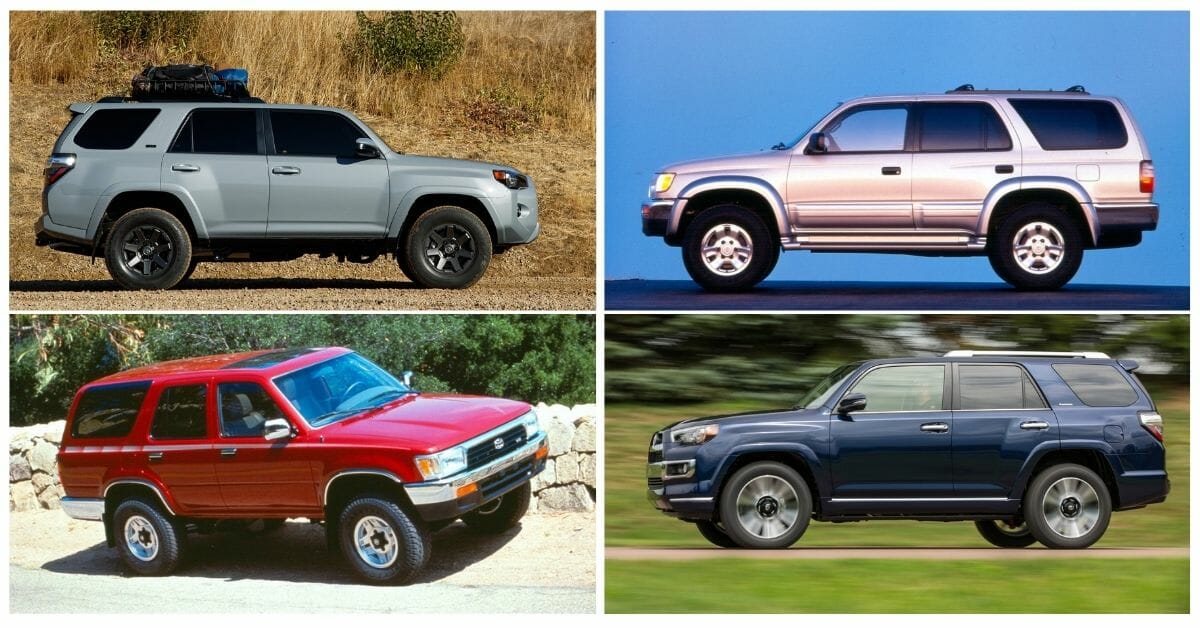
For nearly 40 years, Toyota’s popular SUV has been a favorite of off-roaders. But, which is the best model year to buy when you’re in the market for a new or pre-owned 4Runner?
Since the first 4Runner released in 1984, Toyota’s iconic four-wheel-drive off-road SUV has had an endlessly-growing cult following. What started life as a modified version of Toyota’s flagship pickup truck has grown into its own entity, trailblazing a standalone path to success. It’s easy to see what makes them so attractive. Combine a fun, capable off-road vehicle with Toyota’s iconic reliability, and you’ve got yourself the perfect daily driver to take you anywhere from the office to the mountain tops. If you’re in the market for a secondhand 4Runner, there are several things to consider for each generation. While none of them are worth discrediting as a wrong choice, there are a few factors in deciding which one is the best for you.
1st-Gen 4Runner (’84-’89): Bold Mix of Truck & SUV that Commands Attention
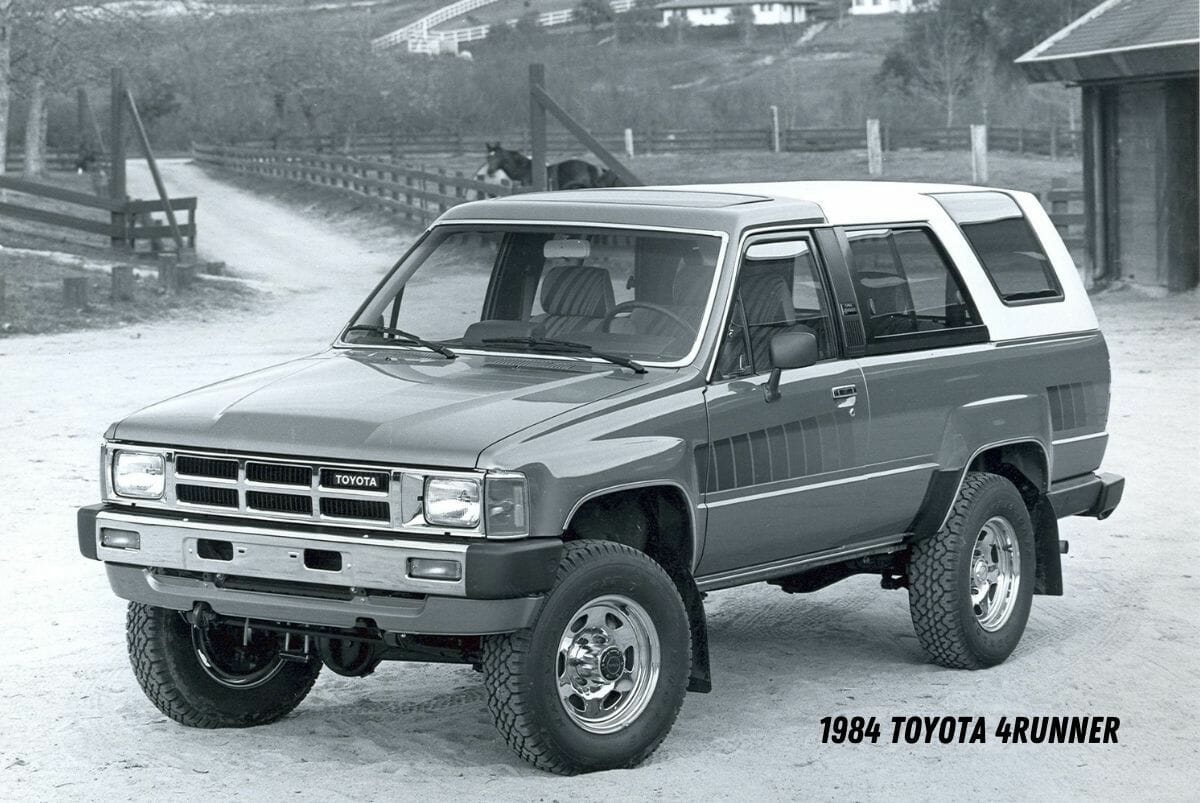
Born from a collaboration between Toyota and Winnebago known as the Toyota Trekker, the first-generation 4Runner offered a unique departure from the Land Cruiser, its fellow Toyota SUV option. Spanning from 1984 to 1989, it shares chassis and most of its body with the Toyota Hilux pickup truck, with a few exceptions. Most notably, the removable fiberglass top. Beneath that top, though, you’ll find a rear seat centered in a fully upholstered interior.
Under the hood of the first-generation Toyota 4Runner, you’ll find either the practically-infallible 2.4- liter 22R or 22RE four-cylinder. These engines are renowned for backing up repeated claims that they’ll last forever. Alternatively, a 3.0-liter V6 was available—furthermore, a minimal number of turbocharged 22RE variants. Though, finding a turbocharged example is like finding a (very expensive) needle in the haystack.
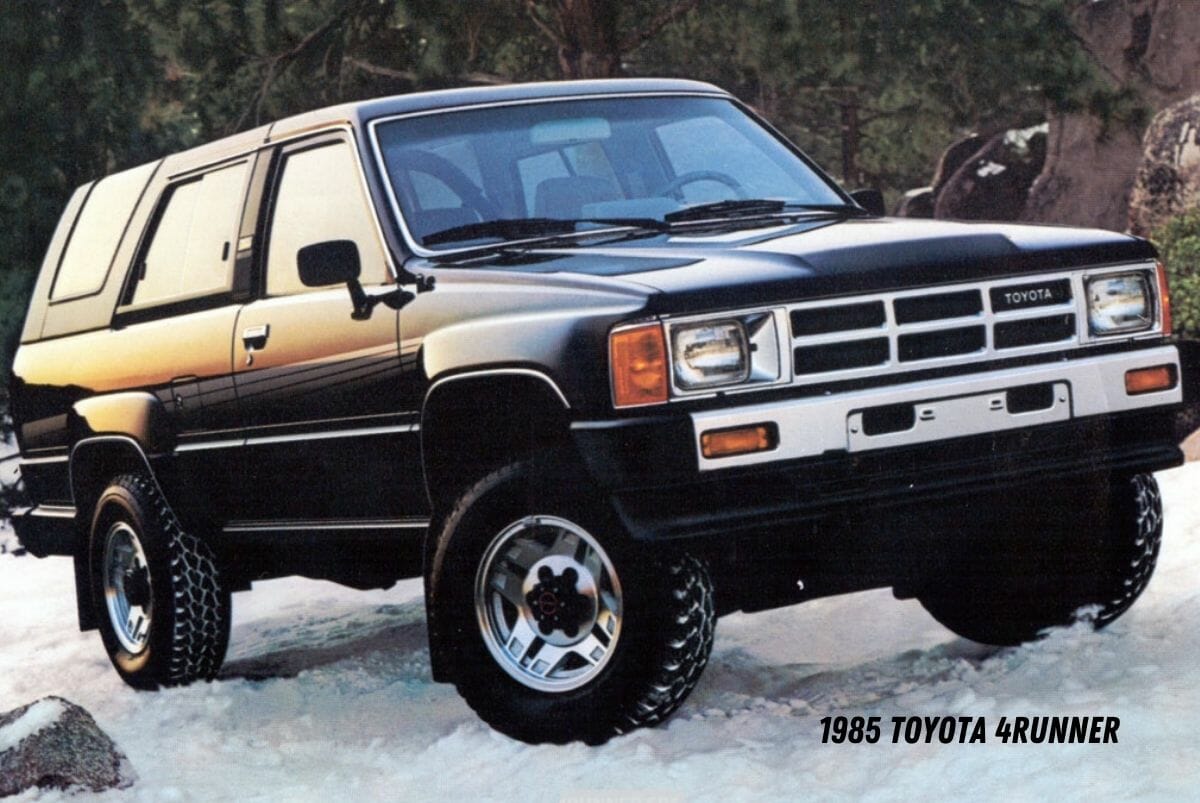
Though widely referred to as one of the most reliable off-road-ready vehicles, the first generation 4Runner is not without faults. They aren’t exactly powerhouses, with the four-cylinder EFI variants making 116 horsepower and the V6 pushing 145 horsepower.
If you’re in the market for a secondhand 4Runner, there are several things to consider for each generation when deciding which one is the best for you.
Another challenge is finding them in decent shape, given their age. The 4Runner didn’t have a big sales break until 1988 when Toyota sold 20,880 examples, nearly as many as they sold from 1984 to 1987 combined.
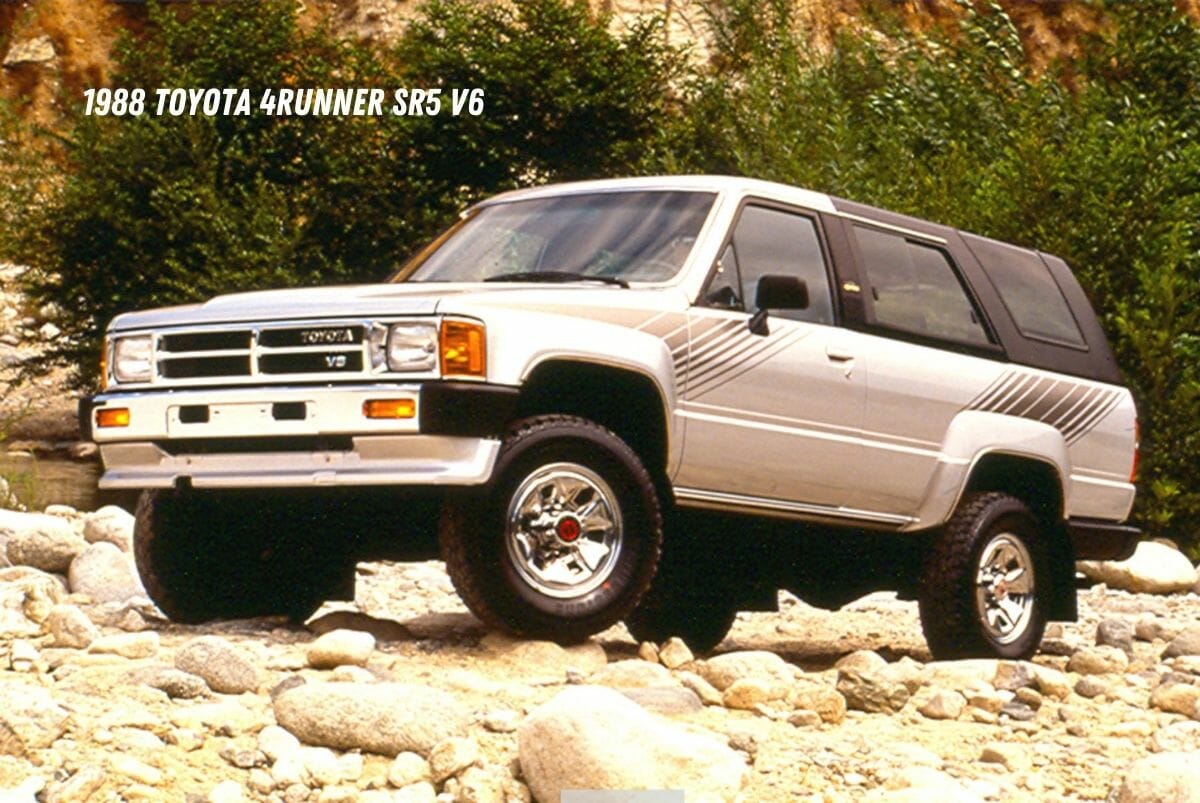
As with buying any car that is nearly 40 years old, you’ll have to be prepared for repairs, leaks, rust, and other age-related general issues. Perhaps the most considerable thing to consider when looking to buy a first-generation 4Runner is its rising popularity and its somewhat limited production. Very well-maintained examples are fetching prices north of $10,000. More and more clean models are being saved for collector’s auctions.
2nd-Gen 4Runner (’90-’95): Branching Out from its Pickup Counterpart
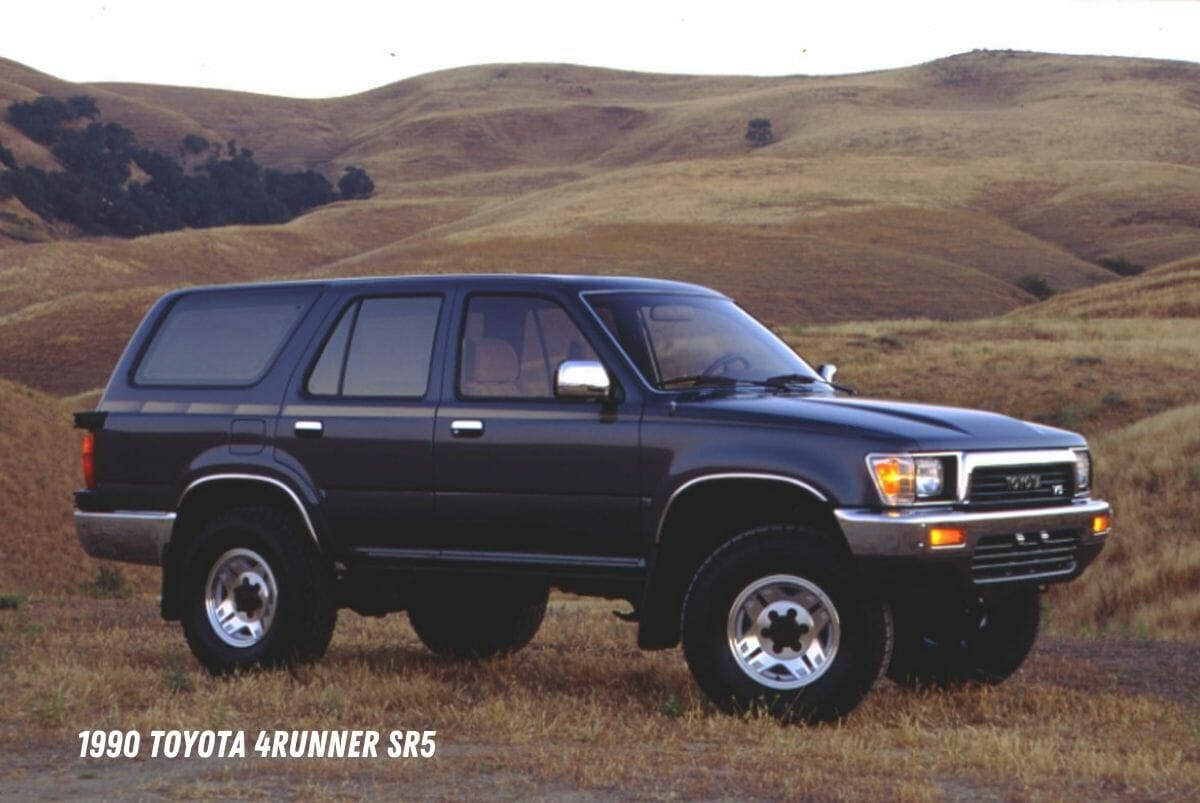
The 1990 model year brought the first revamp of the 4Runner to the market. The second-generation 4Runner (1990-1995) does still share chassis with the Hilux pickup. However, this generation has a unique body, separating it from the Hilux. While the removable roof was ditched, Toyota still maintained the iconic retractable glass in the tailgate found on the first-generation. Additionally, the second-generation brought a brand new concept to the 4Runner-four doors. While a two-door variant was still offered, the majority of second-generation examples sold were indeed four-door models.
While still an off-road force to be reckoned with, Toyota turned more toward the creature comfort side of things with the second-generation. The addition of rear doors signals the 4Runner’s steering away from the blue-collar utilitarian side of the market and drifting more towards the middle of the road in terms of who may be interested in buying them. Don’t be fooled, though. The second-generation 4runner is still an excellent choice for the world of off-roading and exploring. It just makes it a little easier to bring your friends and family along relative to the first-generation.
Though considered one of the most reliable off-roaders, the first-gen 4Runners aren’t exactly powerhouses, with the EFI variants making 116 hp & the V6 pushing 145 hp.
The second-generation 4Runner maintains the 22RE four-cylinder and 3VZ six-cylinder engine options from the previous generation. Like the first generation, both automatic and manual variants are reasonably readily available.
Things to watch out for with the second-generation include a small set of recalls regarding faulty exterior lighting and steering issues. Furthermore, the second-generation is still prone to some of the age-related problems from the first-generation. Leaks and rust are not unexpected or uncommon. However, stepping into a second-generation 4Runner in good shape is currently far more affordable than a first-generation. Finding one in the $5,000 range is not all that difficult of a task.
3rd-Gen 4Runner (’96-’02): Engine Gets More Power
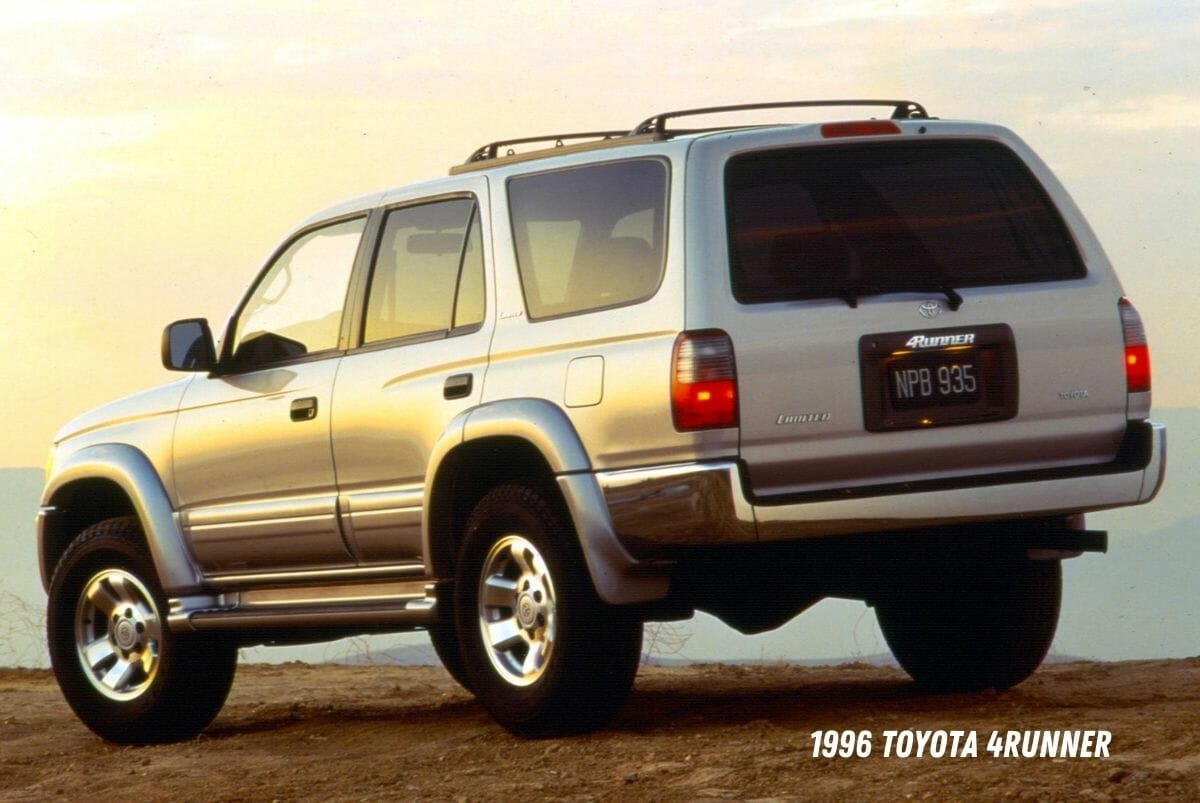
By the 1996 model year, the 4Runner’s turn towards an everyday driver’s car went into full effect. With Toyota selling nearly 100,000 third-generation models in the first model year, it’s clear that this decision worked out to their advantage. In fact, the third-generation (1996-2002) was an overall turning point for the 4Runner in the U.S. Throughout its seven-year run, Toyota sold over 750,000 third-generation 4Runners. That is near twice the amount of first and second-generation models combined. America’s love for the SUV had taken over, and Toyota had the perfect answer to the demand.
Along with the all-new look came all-new engine options. The 2.7-liter 150 horsepower four-cylinder option and 3.4-liter 183 horsepower V6 option marks a substantial power upgrade from previous generations. Additionally, this generation is the last one to offer a manual transmission. Some may argue that its modernized interior with a focus on ergonomics, cargo room, and passenger comfort took its 4Runner soul from it.
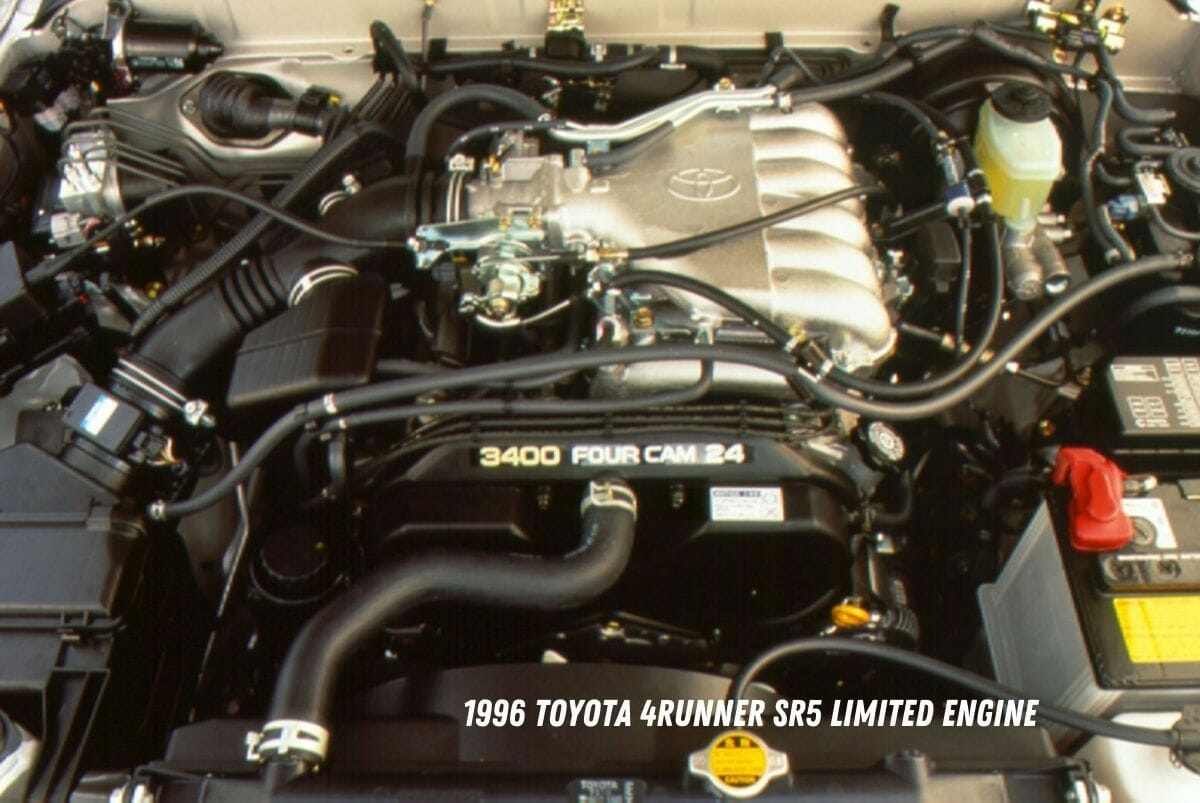
Regardless, the third-generation 4Runner is genuinely the perfect middle ground for those currently in the market. It offers all the comforts of a modern car while maintaining the off-road capability focus that makes the 4Runner great. With their mass production, too, prices are remarkably reasonable. Some can be found for under the $10,000 mark in decent condition.
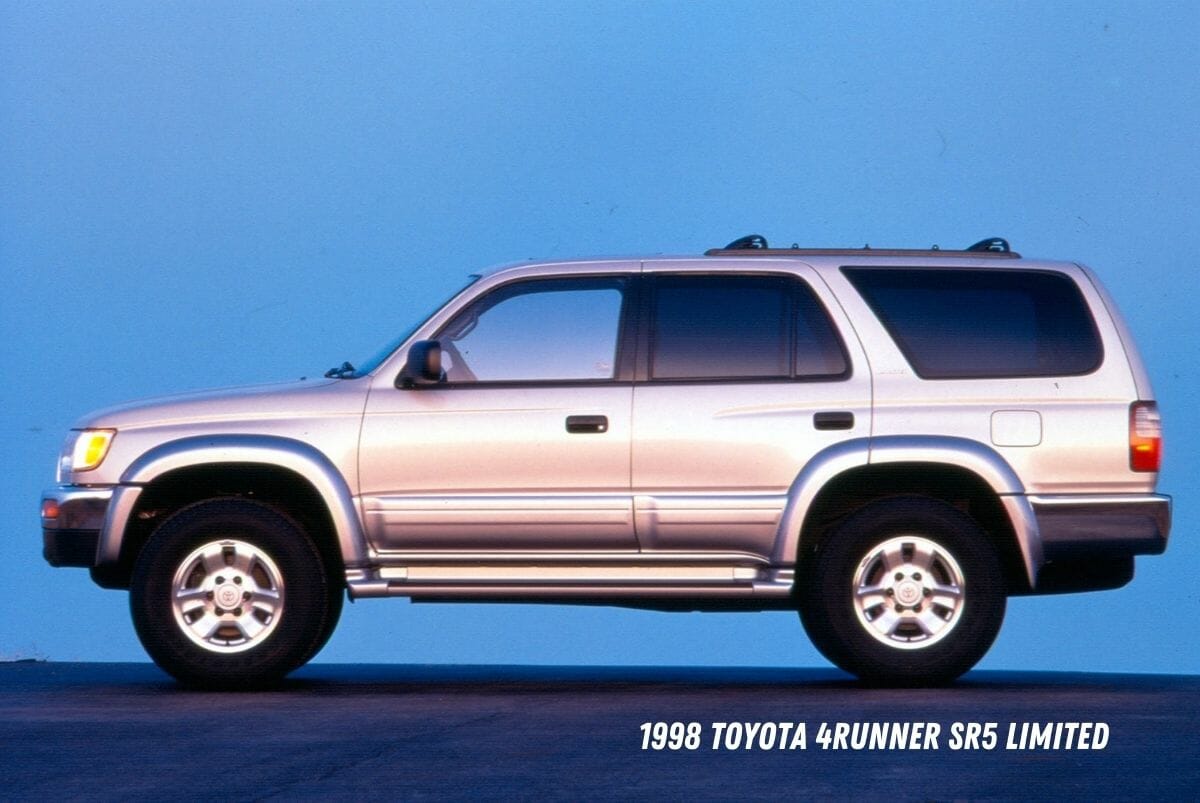
Among the usual things to look out for on a vehicle of this age, third-generation 4Runners suffered some recalls for suspension-related components negatively affecting handling and safety, as well as exterior lighting recalls and even one for faulty lugnuts. As when purchasing any used vehicle, it’s best to have the vehicle inspected before purchase and run the VIN through a reliable recall database.
4th-Gen 4Runner (’03-’09): Full-blown SUV Transformation
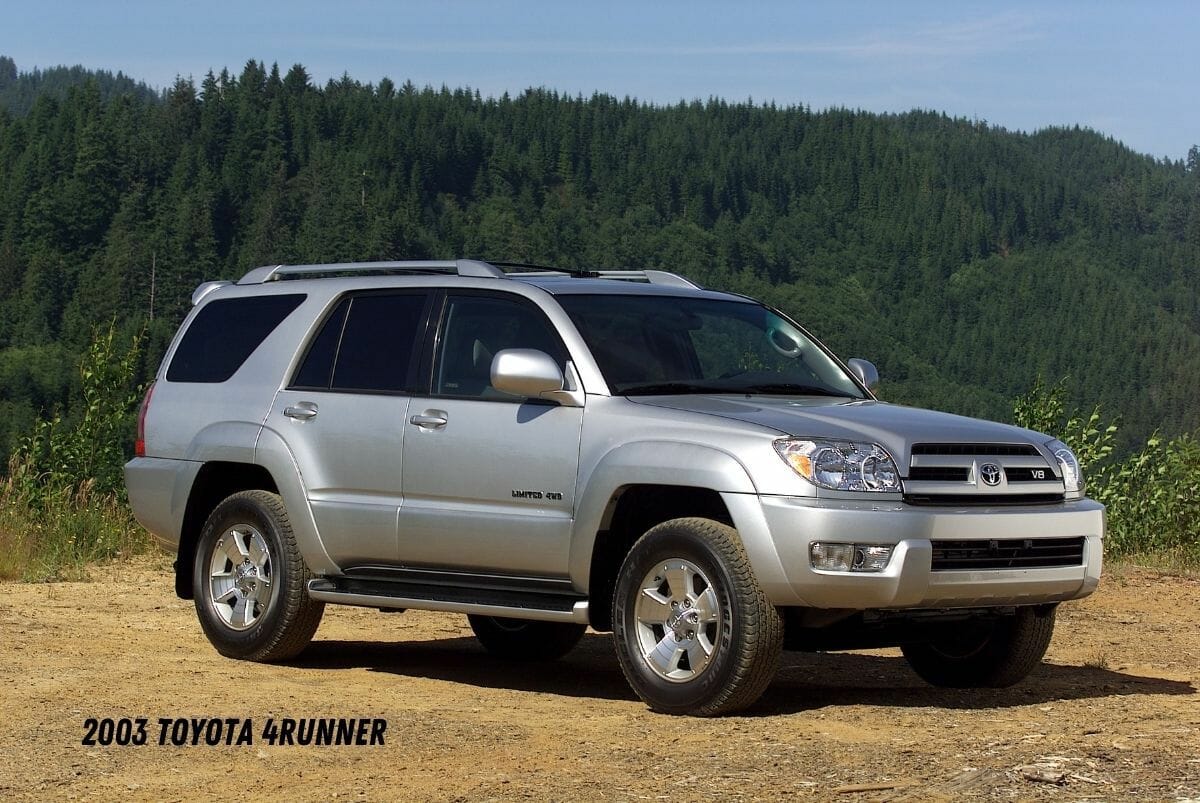
The 2003 model year of the Toyota 4Runner brought what is arguably the most drastic appearance overall of the 4Runner lineage. While this overhaul’s primary intention was to continue the growth of the 4Runner’s sales niche by making it a road- and family-friendly full-blown SUV, some changes brought on by the fourth-generation increased some utilitarian functionality.
They came standard with a 4.0-liter V6 making 245 horsepower. However, the optional 4.7-liter V8 made up to 265 horsepower, depending on the model year. The larger displacement engines and more available cylinders take the fourth-generation 4Runner to a new level that previous generations did not achieve to this extent in terms of torque production. This made the fourth-generation models far more exemplary in towing than their predecessors.
If you’re looking to take the family on a camping road trip, this is the turning point in the 4Runner lineage you are looking for. Especially if you have a boat or trailer — that being said, it is an interesting departure from the nimble off-road spirit of the 4Runner. After all, Toyota also offered the Sequoia during the span of the fourth-gen 4Runner’s lifetime.
Third-gen 4Runners suffered some recalls for suspension issues affecting handling & safety, as well as exterior lighting recalls & even one for faulty lugnuts.
The fourth-generation (2003–2009) 4Runner comes in varying trim levels, including the addition of the sport package. Prices vary greatly, but like the third-generation, a $10,000 budget would put you comfortably into a decent fourth-generation 4Runner. However, in 2009, Toyota announced a mass recall involving many vehicles, including this generation of 4Runner, regarding floor mats that may cause the accelerator pedal to stick down.
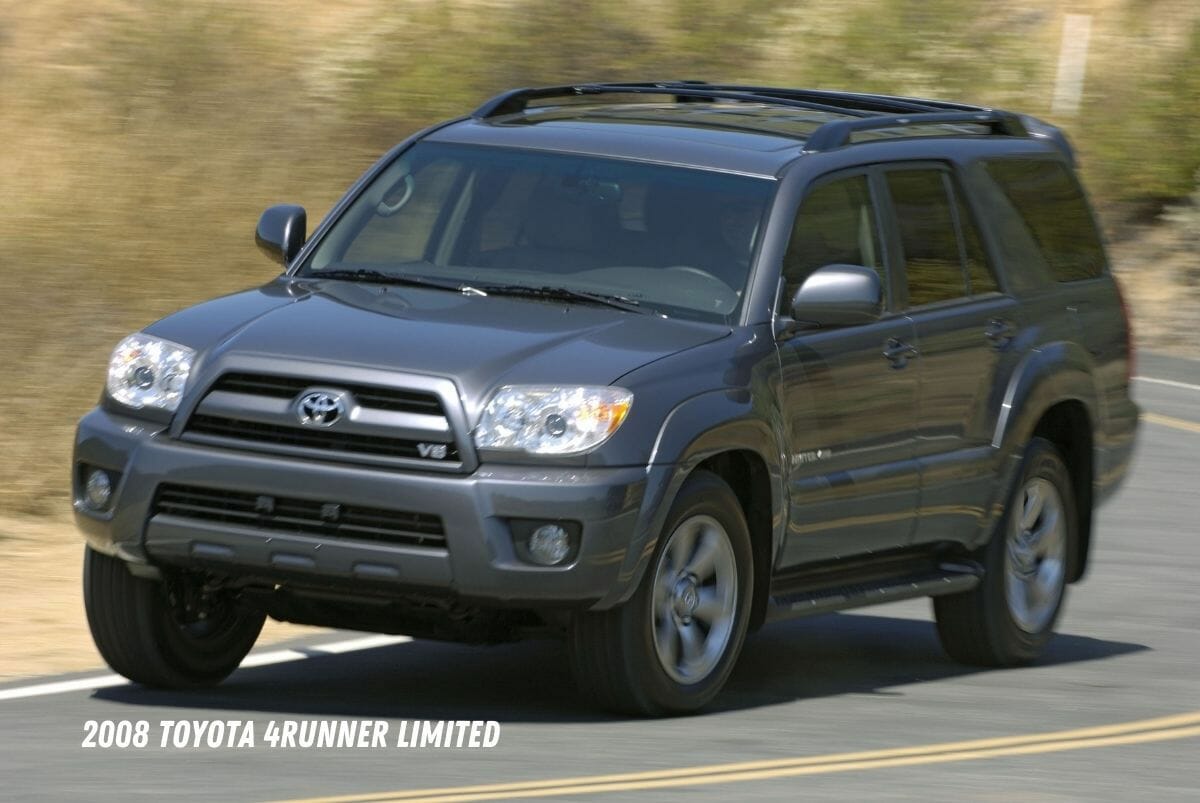
Additionally, some model years have an active recall for faulty airbag modules that may cause inadvertent detonation of side curtain airbags. Once again, it is imperative to properly inspect a vehicle and its recall history before purchasing.
5fth-Gen 4Runner: (’10-present): Luxury Redefined
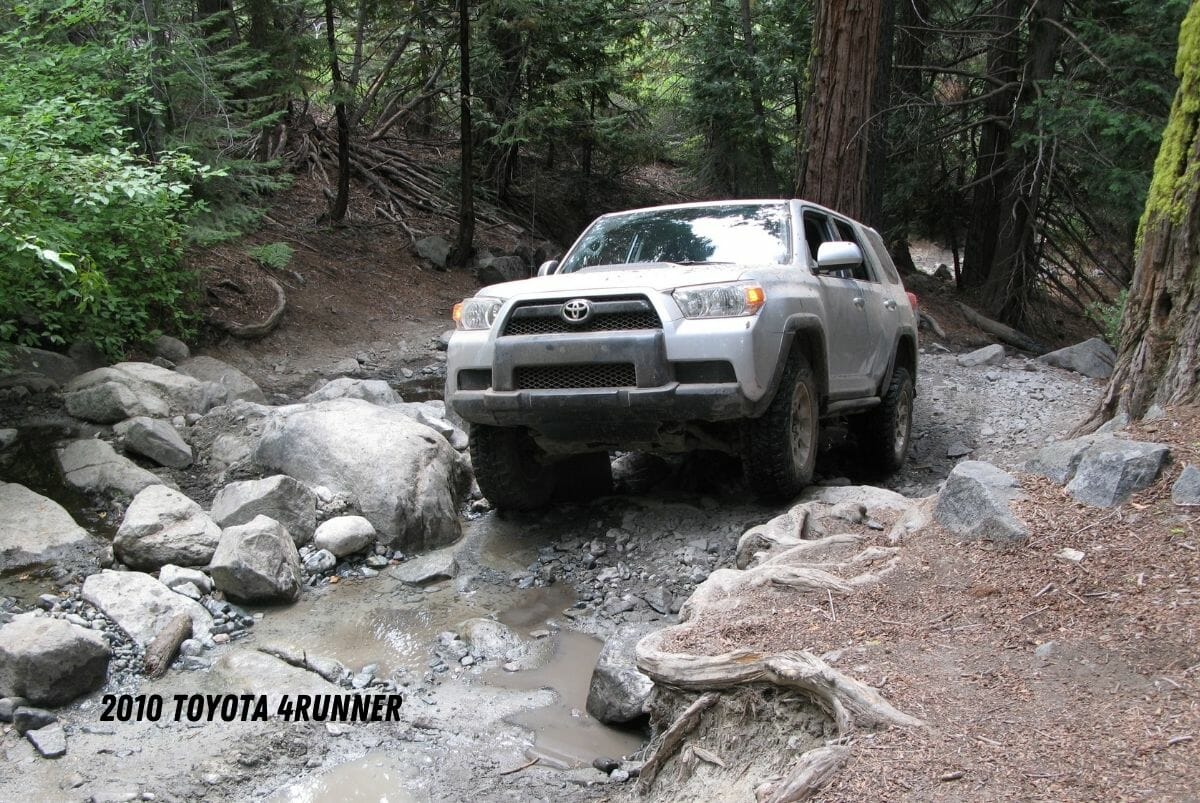
Model-year 2010 brings us to the 4Runner in its current state. Though it is the most modern, Toyota turned back to the heritage of the original 4Runner with this revamp. It was initially available with a four-cylinder, though that engine got axed by the 2011 model year. It is now exclusively available with a 4.0-liter V6 making 270 horsepower. An even more apparent tip of the hat to the off-road heritage is the release of the TRD Pro, Trail, Trail Premium, and TRD Off-road packages.
Being the newest models, it is no surprise for them to be the most expensive, but not without a recall. However, earlier model years can be found for under $30,000 with decently-low mileage.
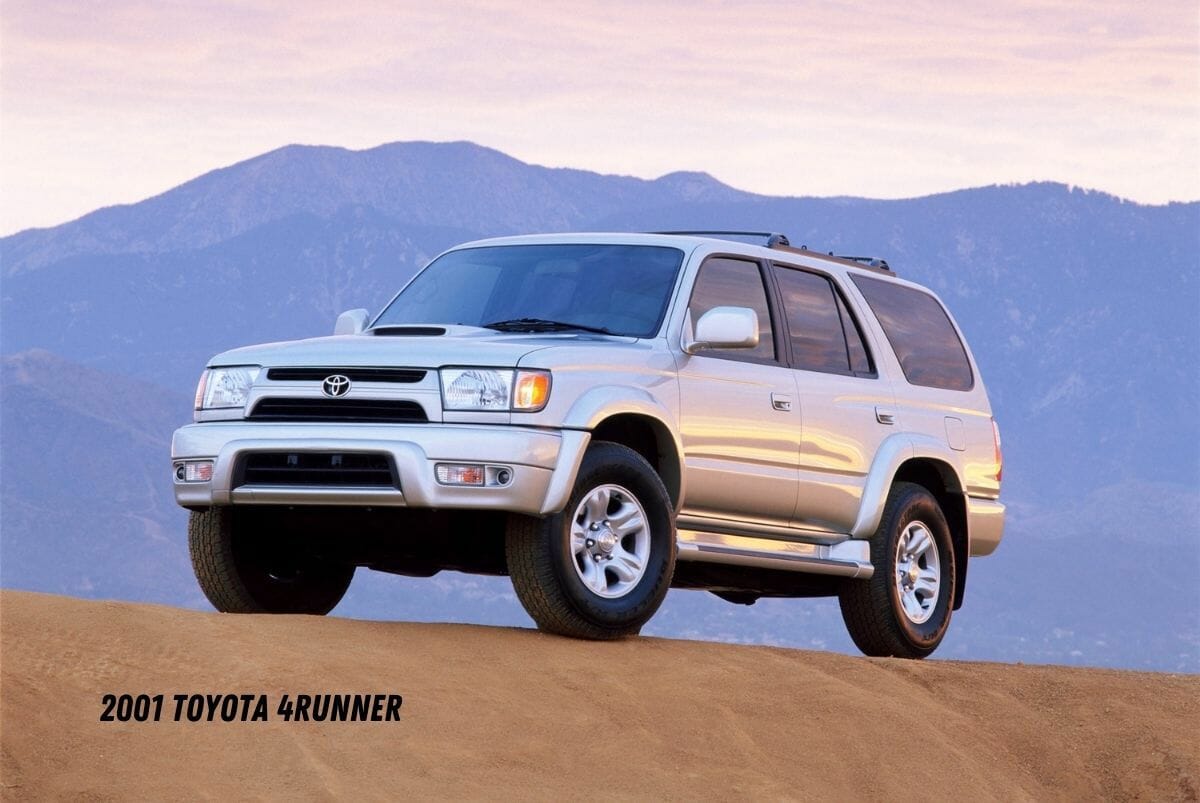
Overall, the best 4Runner model is not an easy choice to make. However, taking into consideration that 4Runners have had high marks in front and side crash-test ratings from the NHTSA, it boils down to blending the perfect balance of modern amenities and off-road heritage. For that reason, it is hard to ignore the third-generation 4Runner. They are readily available at a reasonable price and prepared to do exactly what the original 4Runner was intended to do: Go out and explore.
Photos: Toyota
